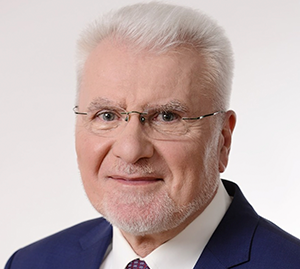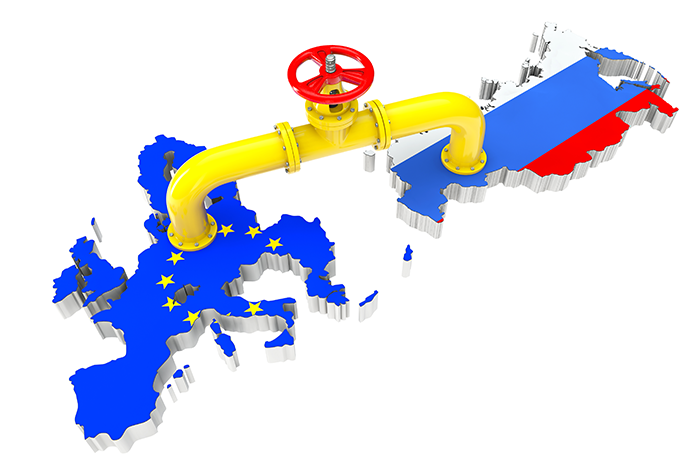"Today, not a single EU member state can represent its interests alone”
The EU can only become a notable global actor if it can make decisions swiftly and resolutely – says József Pálinkás. The prime ministerial candidate of the Új Világ Néppárt (New World – People’s Party) supports further EU integration in the fields of foreign- and security policy. He is in favor of less but strictly enforced sanctions on Russia. Currently, in line with the views of northern member states and Germany, he is rather against the EU taking loans with joint responsibility on more than one occasion, but emphasizes that Hungary would have to join the initiative if there was a clear majority behind the idea. Interview series, part three.
Interviews with other candidates:
- Klára Dobrev: “I would make the EU and Hungary stronger on the global scene”
- András Fekete-Győr: “Huawei is such a large national security threat that is simply not offset by the low price of its 5G network”
- Péter Jakab: "The precondition of a common EU foreign policy is that each European citizen could identify themselves with it."
- Péter Márki-Zay: "The Austro-Hungarian Monarchy had common Foreign-, Defense- and Finance Ministries. It is frustrating that European integration is not there yet 150 years later."
- Gergely Karácsony: "The first step should be the termination of the Paks contract."
The original responses in Hungarian can be found at the following links:
- Dobrev Klára: „Megerősíteném az EU és Magyarország világpolitikai súlyát”
- Fekete-Győr András: „A Huawei olyan nemzetbiztonsági kockázatot jelent, amit egyszerűen nem ellensúlyoz az általuk kiépített 5G-rendszer alacsony ára”
- Pálinkás József: „Ma egyetlen EU-tagállam sem elég erős ahhoz, hogy az érdekeit egyedül hatékonyan tudja képviselni”
- Jakab Péter: „A közös uniós külpolitika feltétele, hogy minden európai polgár ugyanolyan mértékben magáénak érezze”
- Márki-Zay Péter: „Az Osztrák-Magyar Monarchia már 1867-ben eljutott a közös külügy, hadügy, pénzügy koncepciójáig, elkeserítő, hogy 150 évvel később az európai integráció még nem tart itt"
- Karácsony Gergely: „Első lépésként a paksi szerződést kell felmondani”

Recent events have shown that the European Union (EU) often moved as a lame duck on the foreign policy scene, as unanimous decision-making in the field means a single member state’s rejection is enough to block an EU statement or policy decision. The European Parliament (EP) called for moving towards qualified majority voting in the field of foreign policy – at least in human rights cases – multiple times. Would your government support making EU foreign policy decisions with qualified majority voting?
Yes, we support introducing qualified majority voting in the field of foreign policy. Recent events have shown that the EU is incapable of making decisions on key international matters, or it can only take a late and very weak stance to reach consensus. The EU will become a notable global actor only if it becomes capable of taking swift and resolute decisions. Naturally, the conditions of this transformation must be laid down accurately and in detail.
Is there actually a need for the Union to follow a united, strong foreign policy or is it preferable to allow all member states to choose their own strategies with minimal EU-level cooperation?
It is necessary to approve a common foreign policy strategy and represent it coherently. Today, not a single EU member state is strong enough to represent its interests efficiently alone. Moreover, serious challenges, such as climate change, migration, Russia, China, international terrorism etc., require coordinated action and the creation of a Europe that is capable to act. Naturally, member states should retain their space for maneuver in numerous foreign policy issues.

Would your government support the EU strengthening, expanding sectoral economic sanctions against Russia? Why or why not?
This depends on Russia’s future behavior. If the country continues attacking the international order and committing further human rights abuses, extending sectoral sanctions might become necessary. We are not against it but – right now – we are not advocating for it either. Sanctions must be proportionate with the severity of the action that is being sanctioned. It is tough to talk about strengthening or extending sanctions in general terms. However, once we do decide on implementing sanctions, they have to be fully enforced in all cases. In the case of actions carrying smaller weight, it is preferable to issue a strong protest rather than implementing sanctions. Regardless, the idea of sanctions is supported by the fact that Russia only understands power. The dark side of the coin is that economically, sanctions are hurting Europe, too.
Do you believe that Hungary should expel Russian diplomats to offer its solidarity to Czechia because of the explosion in Vrbetice? If not expelling diplomats, what would be the right “answer”?
We should have expressed our solidarity with Czechia. We agree with expelling one or two Russian diplomats who are widely known to conduct non-diplomatic activities in solidarity with a fellow Visegrád Group member.
Would your government stop the construction of the two new nuclear blocks in Paks? How would you replace the energy production of these blocks?
One of the first tasks will be re-assessing the contracts and evaluating the consequences of terminating them. If the classified contracts provide a reasonable opportunity to do so, we will agree to their termination.

What are the solutions for Hungary’s heavy dependence on Russian energy?
Partly by increasing the capacities of renewable energy sources – primarily that of solar energy – and party by connecting to western energy networks and acquiring LNG gas from terminals in the Adriatic- and Baltic Sea regions.
Would your government support EU sanctions against further Chinese officials for their role in human rights abuses against the Uyghurs or anti-democratic actions in Hong Kong? Why or why not?
Sanctions against officials involved in these matters and others, including economic restrictions, must both be considered. The EU must act against China in a resolute and unified manner.

Do you believe that Chinese companies, like Huawei, should be banned from the development of Hungary’s 5G network even if it would raise construction costs?
We are advocating for a common decision on the European level. If it becomes certain that their participation poses a national security threat, we are ready to ban Chinese service providers from the construction of 5G networks. In fact, costs would not rise to such an extent that would justify deserting our allies.
Would your government put an end to the renovation of the Budapest-Belgrade railway and the construction of the Fudan University campus in Budapest? What would you spend the money allocated to these projects on?
We are against both projects in their current form and support terminating the relevant contracts. The sum that could be reallocated after putting an end to the Budapest-Belgrade railway renovation would be spent on the development of the domestic transport infrastructure. After stopping the Fudan campus construction, only a small sum – Hungary’s contribution – would be freed, and the country would not fall into further debt. The money freed up would then be spent on developing the Hungarian education sector.
China and the EU agreed on an investment agreement in December 2020, which could help European companies on the Chinese market. This needs to be ratified by the EP, but it has not done so due to Chinese counter-sanctions against some MEPs and human rights concerns. Do you believe that the ratification of this treaty is in Hungary’s interest? Do you think that the human rights situation needs to be taken into account when developing the EU’s relationship with China? If yes, can you explain how?
Human rights are an important but not exclusive part of Europe-China relations, so these have to be taken into account when this relationship is being developed. We agree with the temporary suspension of the CAI’s ratification and we will only support continuing the process if there is notable progress in the problematic areas. Human rights must primarily be considered as a diplomatic, not an economic matter. At the same time, we need to express disagreement clearly and resolutely in all cases of human rights abuses.

Do you believe that disinformation – especially the manipulative rhetoric spread by Moscow and Beijing – constitutes a national security threat? What steps would your government take on the national and EU level to fight disinformation?
Yes, it is a clear national security threat and my government will place special emphasis on cyber security and countering disinformation operations. We are advocating for a common European strategy and the creation of joint resilience capabilities in this field. A disinformation monitoring unit must be created within national security services that could tag these sources in social media.
Fourteen EU member states are proposing to create a 5000-man-strong, well-equipped quick response military force. Hungary, based on media information, is not among the fourteen. Would you support creating such a force and potentially deploying it even to conflict zones? Do you believe that the deployment should take place after a unanimous agreement or would qualified majority voting be enough?
Creating a quick response unit seems to be a sensible step but it needs to be considered seriously only if it is bound to the creation of a true common defense policy and the formulation of a decision mechanism on the deployment of the military force. If it does happen, we support Hungary joining the initiative.
It was revealed recently that Hungary is not planning to withdraw the HUF 3300 billion allocated to it in preferential loans in the frames of the Recovery and Resilience Facility, although it could access it any time until 2023. Would your government take these loans? If yes, would you use the entire credit line? What would you spend these resources on?
We would withdraw this loan, but only as much as economic actors need. The loan must only be spent on investments creating value.
The EU took loans for the first time with joint member state responsibility for the debt. Some are on the opinion that this should become more than a one-time scheme, which is supported – for instance – by the Greek and Spanish prime ministers. Northern member states and Germany reject this idea. Which side should Hungary be on in this debate?
If it is not a single occasion but becomes a regular mechanism, it would be a key step towards federalism. We believe the majority of member states are not ready for this, we are not in favor either, but if the idea gathers a clear majority, Hungary cannot decide to stay out of it. Currently, I am more in favor of the northern and German opinion. Pushing the EU into debt – in addition to member states’ own debts – would harm the European economy.
Which policy areas are the ones where you believe closer EU integration is necessary and what are those where member stated should hold the competencies?
Primarily in the field of foreign- and security policy, but further integration is likely to take place also in the fields of fiscal and monetary policy, energy, climate policy, and law enforcement. Education and culture, which are key in strengthening and nurturing national identity, must remain a national competence. Sensible deregulation is possible in several policy fields (e.g., industrial and agricultural regulations).
Our interview with József Pálinkás is the third in the series. We sent our questions to all prime ministerial candidates partaking in the opposition primaries to know more about their foreign policy views, especially in the European dimension. We are publishing the answers in the order of receiving then after minimal editing.
This is the English translation of the original, Hungarian-language interview.
Political Capital and its partners from Bulgaria, Czechia, Poland, Austria, Slovakia and Romania are researching value-based foreign policy preferences and the prevalence of authoritarian influence in the EU institutional system with the support of National Endowment for Democracy.

